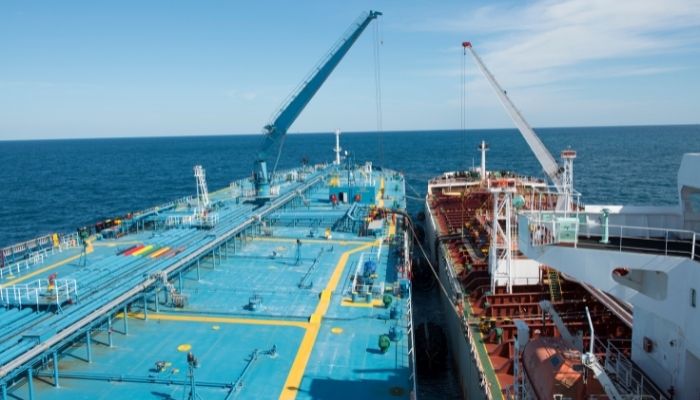

Despite several sanctions from the West, Russia’s oil continues to funnel via ship-to-ship transfers into Europe, off the Mediterranean coast of Greece, per Nikkei Asia’s report.
The analysis discovered that since Russia launched an invasion of Ukraine, the Greek coast has been the location for 41 vessels carrying out ship-to-ship transfers of oil that came from Russia and later reached Europe.
In the year before, there was simply one such vessel.
Over six months up to 22 August, Nikkei’s reporting confirmed that 175 transfers off the Greek coast involved Russian tankers. The figure compares to nine transfers observed during the same time in 2021.


Almost 89 tankers from the batch reached the ports, with 41 landing in Greece-based ports, Belgium, and other European ports. That is up from one tanker observed the year before.
The survey also highlighted the vital role waters near Greece serve as an essential hub for oil shipments between Russia and Europe, per Nikkei Asia.
Russia exported about 23.86 million barrels of oil off Greece for ship-to-ship transfers, per data from Refinitiv, up from 4.34 million barrels shipped simultaneously in 2021.
Ship-to-ship transfers have emerged as a way for sellers and buyers of Russia’s oil to cover up the origin of supplies in recent months that permit sanctioned items to keep exchanging hands.
Come 2023; the EU is prepared to place a fresh set of sanctions that ban seaborne oil imports from Russia. The US is also spearheading a Group of Seven initiative to cap the price of Russia’s oil to squeeze the finances of Moscow.
However, Nikolai Shulginov, Russia’s energy minister, reportedly warned on Tuesday that the country would respond to price caps; however, sending more crude to Asia and efforts to limit rates will end up rattling the energy markets.
He particularly mentioned at the Eastern Economic Forum, per Reuters, that actions to impose a price cap will result in a deficit in initiating countries’ markets and increase price volatility.
References: Business Insider, Finance Yahoo










We believe that knowledge is power, and we’re committed to empowering our readers with the information and resources they need to succeed in the merchant navy industry.
Whether you’re looking for advice on career planning, news and analysis, or just want to connect with other aspiring merchant navy applicants, The Marine Learners is the place to be.